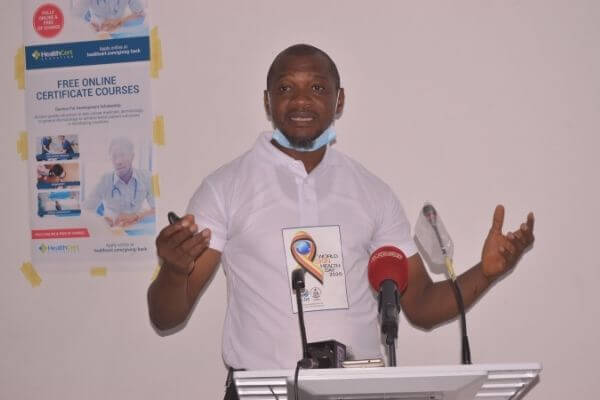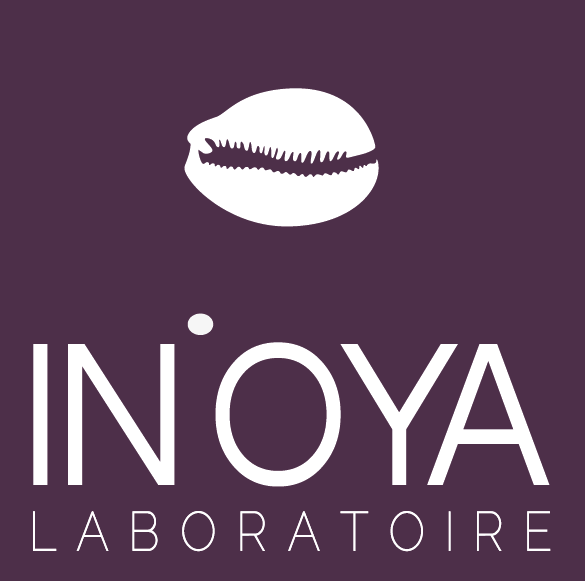
Dr. Traoré, chief dermatologist based in Africa, discusses the specific skin problems of black, dark and mixed race skin.
DR. TRAORÉ, YOU HAVE BEEN PRACTICING FOR 3 YEARS IN THE DERMATOLOGY CLINIC IN CONAKRY, GUINEA. WHY DID YOU CHOOSE TO BECOME A DERMATOLOGIST ?
What I particularly appreciate about being a dermatologist is the global management of a skin, nail, hair and/or mucous membrane condition. Indeed, it is very often characterized by a chronic aspect (long duration) and has a negative impact on the quality of life of patients. Therefore, treating skin disorders is a holistic management of the disease. It is not a question of simply treating the disorder observed but of taking into account all aspects in this management, including the psychosocial aspect.
In addition, the dermatologist is confronted with clinical challenges all the time and I like that too. The multifaceted and similar appearance of skin lesions very often leads to different diagnoses. Determining the right condition allows me to prove my expertise.
My passion is this quest for dermatological knowledge for the benefit of the community. Indeed, there is a shortage of dermatologists in the world and even more so in developing countries.
WE KNOW THAT HYPERPIGMENTATION SPOTS ARE ONE OF THE PRIMARY SKIN PROBLEMS OF BLACK, DARK AND MIXED RACE SKIN. BUT WHY ARE THEY PARTICULARLY SENSITIVE ?
The specificity of black, dark and mixed-race skin in terms of hyperpigmentation spots is linked to their brown and black pigment melanins. Indeed, any disorder in their melanogenesis leads to changes in skin pigmentation. They are characterized either by increased or reduced melanocyte activity or by the deposition of another pigment in the skin.
In addition, this can be caused by various stimuli such as UV rays from the sun for example. However, post-inflammatory hyperpigmentation spots are the most common type of spot in pigmented skin. Indeed, the healing process can activate excess melanin and create these skin disorders. They are the skin's response to intense inflammatory changes such as the healing of an acne pimple or repeated rubbing, etc.
WHAT OTHER PROBLEMS ARE COMMON WITH PIGMENTED SKIN ?
Skin disorders involving increased melanin activity in the healing process will frequently occur on pigmented skin. These include: acne, mosquito bites, eczema, keloids, folliculitis, Pseudofolliculitis, black papular dermatosis which occurs very frequently in individuals with Fitzpatrick skin types III to VI (African and Asian origin)
HOW DIFFICULT IS IT IN GUINEA TO ACCESS A DERMATOLOGICAL CONSULTATION ?
Guinea is an underdeveloped country where more than half of the population lives on less than one dollar a day. Difficulties in the health care system include misdiagnosis of diseases, lack of training, low standard of living among patients, and lack of information in the community about diseases.
In the whole country, only one dermatology service exists and it is located in Conakry, precisely at the Donka Hospital. Diseases of the skin, hair, nails and mucous membranes occupy most of the consultations in health centers and university hospitals (nearly 35% of consultations in general medicine report cases of skin disorders). It is in this context that the dermatology clinic was set up to improve the skin health of the community.
Within the same framework, an application exists that allows patients or physicians to submit cases to us remotely. When these cases are submitted, we establish a treatment immediately and send it to the patient. The patient can then pick up the medication using the prescriptions we have made. He is treated without having to meet us face to face. This is what we call teledermatology (tele-expertise and tele-consultation). This facilitates access to quality care but above all allows patients to spend less money.
YOU OFTEN ORGANIZE DERMATOLOGICAL AWARENESS CAMPAIGNS IN GUINEA. I AM THINKING IN PARTICULAR OF THE WORLD SKIN HEALTH DAY FOCUSED ON ACNE IN CONAKRY.
.jpg)
WHAT IS THE INTEREST FOR YOU TO ORGANIZE THIS TYPE OF EVENT ?
Indeed, from December 4 to 6, 2020, we organized for the first time in Guinea, the World Skin Health Day under the theme: Psychosocial and psychodermatological impact of Acne.
The impact of this day was very important because it was held on an island of Conakry which is characterized by a precarious standard of living and difficult access to adequate health care. We were able to take care of more than 500 patients free of charge. We distributed free medicines to them according to their diagnosis. This allowed us to promote skin health and to draw the attention of the authorities to the dermatological problems that are present in the community.
It is for these reasons that we are now organizing the next World Skin Health Days of this new year 2021 on the theme of albinism. We are very happy that INOYA accompanies us on this event thanks to the distribution of solar fluid. Indeed, the sun is the enemy of albinos, it is essential that they protect themselves effectively. I was also able to co-write an article : Albinism: causes, African specificities and management
CAN YOU DESCRIBE IN 3 WORDS WHY YOU CHOSE TO TRUST IN’OYA ?
3 words are not enough to describe INOYA. However, I will try :
- Authenticity: Your brand is authentic to black skin. You do not make depigmenting products. This is very important.
- Competence : Your brand is the best on the market.
- Helpfulness : When we came to your laboratory to accompany us in the care we want to bring to albinos, you did not hesitate a moment.


